The Goliath Grouper, a Key Stone Species
Written by Taylor Tsacoumis
Source : https://ali.fish/blog/the-goliath-grouper-a-key-stone-species?rq=tsacoumis
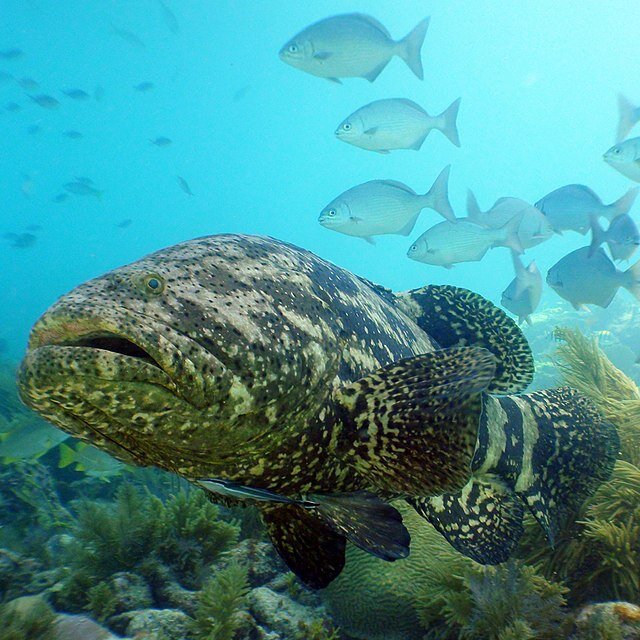
Top predators like the Goliath Grouper (Epinephelus itajara) are considered a Key Stone Species because they are essential in maintaining a balanced ecosystem by controlling mid-level predator populations, such as the invasive lionfish. The Goliath nearly faced extinction in the 1980’s due to overfishing. As a result, in 1993 a harvest moratorium was put in place for the Goliath in Caribbean waters.
The largest of groupers, the Goliath can weigh up to 800 pounds and is recognized by the small black spots that cover their heads and fins and the thick vertical stripes on their sides. These fish can live to almost 40 years old and spend their juvenile lives protected in mangrove forests. The destruction of the mangrove and reef ecosystems due to pollution and human activity is also contributing to the population decrease.
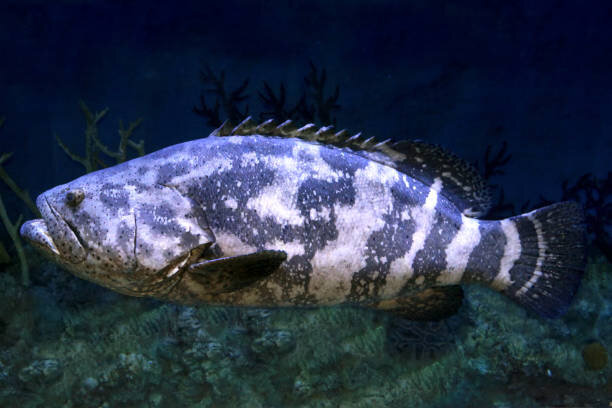
In May 2021, fishers began to put pressure on the Florida Wildlife Conservation (FWC) Commission claiming that the Goliath Grouper population has increased and potentially recovered in Florida waters, and therefore want the FWC to consider opening a lottery to allow harvest of 100 Goliath Groupers per year for a four-year period. This would be a lottery system which would issue $300/week licenses and would allow the catch and kill of one Goliath. This proposal limits the size of the grouper to 4-6.5 feet, 70-200 pounds – which would be a fish around 7-10 years old.
However, allowing recreational fishing of Goliath Groupers would be a mistake for several reasons. First, in 1993 a local organization in the Florida Keys,REEF, created a volunteer Fish Survey Project that contained tens of thousands of surveys looking at fish abundances throughout Florida collected by citizen science divers.This data shows a steady population growth of the Goliath Grouper from where they were nearly extinct in the 1990’s to 2010. Unfortunately, since then the population recovery has either stopped completely or potentially reversed. The reports of the population nearing a recovery is based on the population numbers from the 80’s, when the species was almost extinct, not based on the numbers of when the species was thriving in the 1950’s.
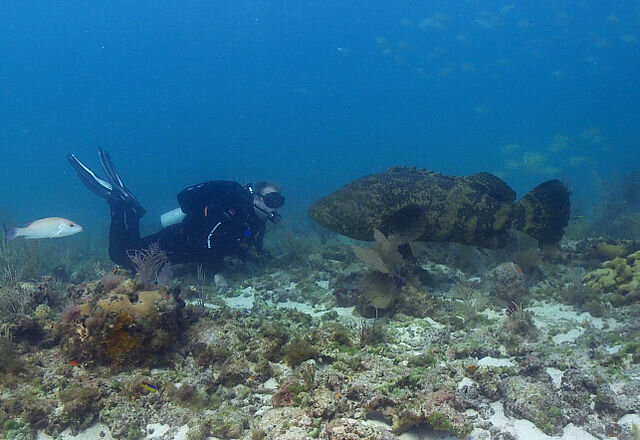
Second, scientists believe the decline today is caused by recurring red tides, cold weather events, the mangrove and reef habitats dying and poor water quality. Any added fishing pressure will certainly lead to further population decline. Finally, another factor that threatens the population recovery is their low reproductive rates. These fish grow slowly and take multiple years to become sexually mature and ready to breed.
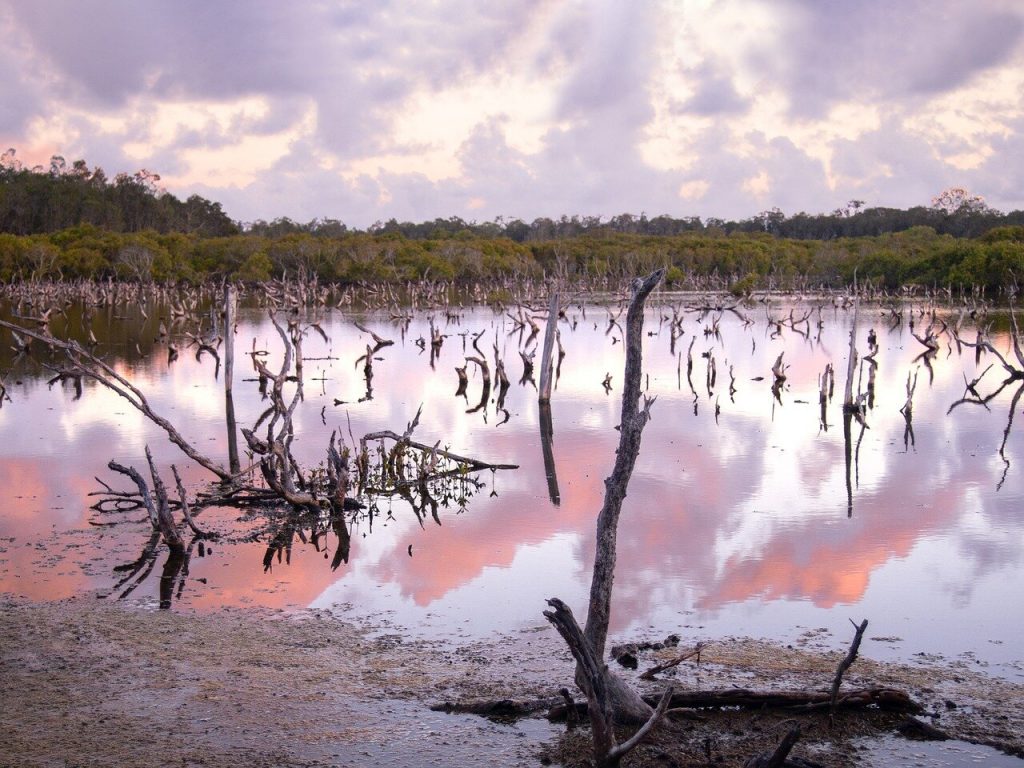
The reason for wanting to lift this ban is due to the misconception that Goliaths are causing a decline in snappers and other game fish, but Goliaths primarily eat crabs and less-prized fish. The possibility of catching and killing a Goliath has led fishers to not see the reality of what will happen if we lose this species.
Fishing for Goliaths isn’t safe for humans either. Scientists have found extraordinarily high mercury concentrations in Goliaths off the coast of the Gulf of Mexico and Atlantic coasts of Florida. One bite of a Goliath contains mercury levels significantly higher than what the EPA considers safe. Consuming high amounts of mercury are incredibly harmful to anyone, but especially to children and pregnant women.
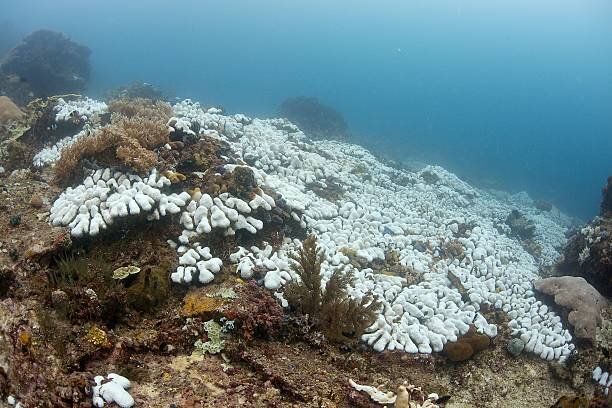
The survival of the Goliath grouper population remains uncertain and faces many environmental and anthropogenic challenges. The current catch and release of this fish, as well as habitat damage, climate change, and water quality issues continue to threaten the longevity of this species. The Goliath Grouper has proven to show much more economic value alive as they have been documented to consume and help manage the invasive Lionfish population and are an important component for dive sites, elevating tourism.
To choose to conserve and protect this species sign this petition to stop the FWC from reopening fishing on the Goliath Grouper. Another way to voice your concern is to email the FWC Commissioners and state that you oppose the proposal to allow a limited “harvest” of the critically endangered goliath grouper at [email protected].
Written by Taylor Tsacoumis